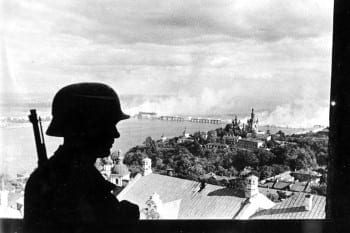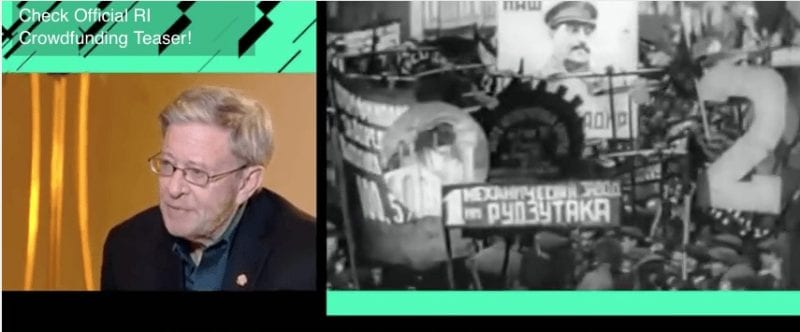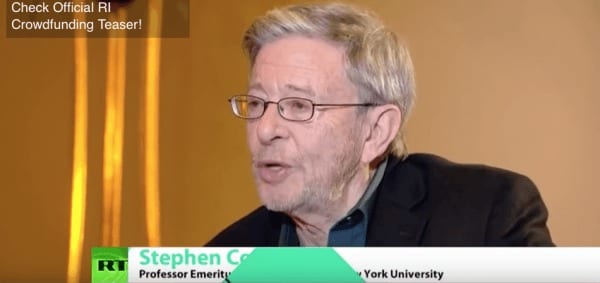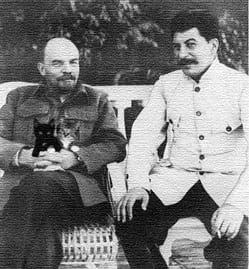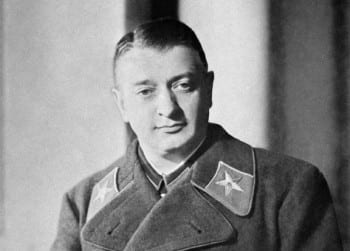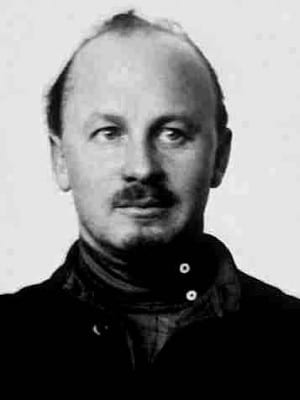![]() THE WEST’S GREAT WAR AGAINST RUSSIA
THE WEST’S GREAT WAR AGAINST RUSSIA
Syria, the Ukraine, and other battlefields are just proxy conflicts. The object is the defeat and destruction of Russia as an independent world power.
Remarks on Interview of Professor Stephen Cohen on RT.COM on November 1, 2015
On November 1, 2015 Stephen F. Cohen was interviewed by Oksana Boyko, a journalist for RT.COM.
Cohen is a retired professor of Soviet history at Columbia University and New York University, a longtime columnist for The Nation magazine, and expert on Nikolai Bukharin.
 Russia’s RT.com by most standards is a damn sight better at reporting international news than its Western counterparts, most of which are constantly engaged in campaigns of blatant disinformation on behalf of the US empire, a task which makes them accomplices in war promotions, a crime for which people received capital sentences at Nuremberg. Yet, perhaps due to the fact that Russia—while slowly evolving toward a more socialist posture —is still very much dominated in some sectors by big oligarchs, some of its media, including RT.com, continue to show moments of questionable programming. In our view this is one such instance, and the proof is that the host conducting the interview—Oksana Boyko— is almost indistinguishable in her animosity toward Stalin and by implication all things socialist from the multitude of Western disinformers that pass every day for professional journalists. Maybe she’s thinking of moving to the States and getting a big ticket job with Faux News, or CNN. Who knows? A career seems to beckon.
Russia’s RT.com by most standards is a damn sight better at reporting international news than its Western counterparts, most of which are constantly engaged in campaigns of blatant disinformation on behalf of the US empire, a task which makes them accomplices in war promotions, a crime for which people received capital sentences at Nuremberg. Yet, perhaps due to the fact that Russia—while slowly evolving toward a more socialist posture —is still very much dominated in some sectors by big oligarchs, some of its media, including RT.com, continue to show moments of questionable programming. In our view this is one such instance, and the proof is that the host conducting the interview—Oksana Boyko— is almost indistinguishable in her animosity toward Stalin and by implication all things socialist from the multitude of Western disinformers that pass every day for professional journalists. Maybe she’s thinking of moving to the States and getting a big ticket job with Faux News, or CNN. Who knows? A career seems to beckon.
The truth and image of Stalin and the USSR itself is by now buried under numerous layers of distortions and falsifications with one unifying thread: whatever is said about them is normally said maliciously out of context, or in the absence of any historical context. In an introduction to a similar piece combating the web of hypocritical demonization of Stalin in 2o14 I said:
We have long maintained that the truth about the USSR, in general, and particularly the Stalin period, has long been the object of the most cynical, mean-spirited, and comprehensive propaganda effort ever seen in the annals of history.
For reasons of sheer class interest among the plutocrats of the West, the business elites that still rule most of the so-called “capitalist democracies,” the demonization of Stalin was a necessity, a campaign only briefly interrupted by World War Two and quickly resumed literally a few hours after its ending.
The Western elites —with the American ruling circles in the lead—correctly saw an enemy in Stalin. They could not bribe him and they could not intimidate him. Nor could they easily topple him, as they had done (and still do) countless times with weaker, “inconvenient leaders.” What’s more, Stalin was at the helm of a powerful nation and titular leader of an ideology directly opposed to their indispensable economic system. Occasional diplomacy aside, they hated him. He and his nation stood in the way of their plans for global hegemony. So the venom had to flow and did—abundantly. And in that sordid enterprise the capitalist elites found countless allies, countess intellectual whores, not to mention the usual battalions of ignorant, useful idiots. [See Historian: Stalin Not Guilty of Major War Crime Blamed on Him (Katyn)]
Nothing since has made me change my opinion on this matter.
—PG
In the late 1970s Cohen’s 1973 book Bukharin and the Bolshevik Revolution was translated secretly into Russian and smuggled into the USSR. Mikhail Gorbachev said that it helped convince him of the evil of the Stalin years. It was the first book by a Western “Sovietologist” to be officially published in Russian, in the USSR, by a Soviet publisher.
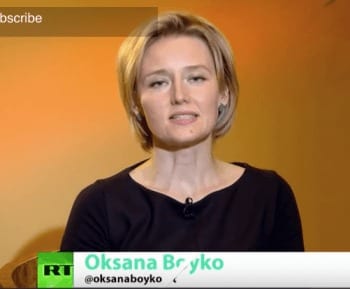 Cohen has some credibility among leftists because he is a liberal among the scholars on the USSR. He has said that he was sorry to see the demise of the USSR and felt terrible about the suffering of the (former) Soviet working class during the Yeltsin years, when living standards and life expectancy went into a free fall. Cohen has opposed US policy on Ukraine and is much more supportive of the Putin policy than virtually any other mainstream scholar of Russia or the USSR.
Cohen has some credibility among leftists because he is a liberal among the scholars on the USSR. He has said that he was sorry to see the demise of the USSR and felt terrible about the suffering of the (former) Soviet working class during the Yeltsin years, when living standards and life expectancy went into a free fall. Cohen has opposed US policy on Ukraine and is much more supportive of the Putin policy than virtually any other mainstream scholar of Russia or the USSR.
It’s all the more important, therefore, to understand that on the subject of Stalin Cohen is more similar to than he is different from the Cold War anticommunist and anti-Stalin ideologues who are the main “expert” voices about Soviet history. Cohen shares with them what I have called the “anti-Stalin paradigm” of history. This is a version of Soviet history of the Stalin period entirely built on lies, fabrications, and forgeries. Cohen repeats some of them here.
In 2012 my Moscow colleague Vladimir L. Bobrov and I published a lengthy article titled “Stephen Cohen’s Biography of Bukharin: A Study in the Falsehood of Khrushchev-Era ‘Revelations’.” (Cultural Logic for 2010) In it we show that virtually every fact-claim Cohen makes in Chapter 10 of his Bukharin biography is false. This is the chapter that takes Bukharin’s life from 1930 to his trial and execution in 1938.
We begin that article by showing that Cohen deliberately lies in this book. Cohen quotes from the memoirs of one of Bukharin’s close friends and colleagues of the 1920s, the Swiss communist Jules Humbert-Droz. Humbert-Droz revealed that Bukharin told him in 1928 that he and his supporters were plotting to assassinate Stalin. Cohen never mentions this passage, concealing it from his readers. When confronted about this omission in 2014 Cohen claimed: “I knew nothing about his subsequent remark until well after my book was published.” This cannot possibly be true since Cohen quotes from the very same memoir in his book.
(I would like to note here that I was directed to Humbert-Droz’ memoir some years ago by a review by Vijay Singh, founder and editor of the fine journal Revolutionary Democracy.)
Therefore Cohen is not above lying about Soviet history of the Stalin period. But I think the main issue here is not Cohen’s personal dishonesty. Rather, it is the “anti-Stalin paradigm” which is required, is the only “politically correct” version of Soviet history allowed. And it is built on lies.
In this talk I will just outline the lies that Cohen tells in this RT.COM interview.
- Cohen refers to “20 million victims of Stalin.” This is a big lie. No anticommunist scholar has come anywhere close to such a number. Timothy Snyder, in Bloodlands, gets a figure of 6-8 million only by including 5 million who died in the 1932-33 famine as “Stalin’s victims.” The best estimates are that the real number of those who died as a result of the famine is about 2.9 million.
- “Collectivization led to the famine.” The opposite is true. Collectivization was a true reform, as Mark Tauger, the foremost expert on Russian famines, has written. As a result of the modernization and mechanization of agriculture, the cycle of famines every 2-3 years in Russia and Ukraine was stopped for good. I discuss this in detail in Blood Lies, where I state that the collectivization of agriculture should have been awarded a Nobel Prize as the greatest feat of social engineering of the 20th century.
We should never concede that there were any “victims of Stalin” other than the exploiters, the capitalists and their supporters, whose “victims” the Russian peasants and working class had been for centuries. Nor should we ever concede that “Stalin killed” anyone – not even one person. Stalin did not “kill” people at all.
- Cohen claims that “the terror continued till Stalin dies in 1953.” Even the most anticommunist researchers acknowledge that the so-called “terror” – mass executions – stopped when Lavrentii Beria took over as head of the NKVD from Nikolai Ezhov in late 1938.
Likewise, we should never concede that there was ANY “terror.” In a 1986 article in Slavic Review, “Fear and Belief in the USSR’s ‘Great Terror’: Response to Arrest, 1935-1939” Robert Thurston argued that there was no “terror” because people were not “terrorized.”
The best term for this period is the Ezhovshchina, or “bad time of Ezhov.”
- Cohen claims that Stalin wrote “arrest family,” “arrest and shoot” on “lists.” This is false. I discuss this in my book Khrushchev Lied.
These lists were sent to the Secretariat, including Stalin, “for review.” Many people on them were not executed, or received lesser punishments, or were released. - Cohen claims that “the NKVD was given quotas by Stalin’s office.” A lie!
Arch Getty discusses this in his latest book Practicing Stalinism. These were not quotas but limits – not minimum, but maximum numbers. Ezhov treated them as “quotas” – but Ezhov had his own conspiracy against the Soviet leadership, for which he was eventually arrested, tried, and executed. - Cohen said: “We know Stalin issued an order for the NKVD in prisons” to “use physical force.”
This is false too. I cover this in Khrushchev Lied. The order in question – which may be a forgery, authorizes the use of “means of physical pressure” only in the case of the most hardened and intransigent enemies of the state. (Cohen gets the dates wrong – the actual date is January 1939, not 1936-37, as Cohen says.) - Cohen says: “Why did he [Stalin] destroy the military high command? Why did he kill them? He convinced himself that they were not loyal.”
We have a great deal of evidence that confirms the guilt of Marshal Tukhachevsky and other military commanders in plotting both a coup d’etat against the Soviet government and Party leadership, and also plotting with Germany and Japan to join invading fascist armies against the Soviet government in the event of war.
The truth, as demonstrated by the best evidence, is that in stopping the military conspiracy Stalin’s leadership contributed to saving not only the Soviet Union, but all of Europe and indeed the world from fascism at that time. Both Germany and Japan would have been immeasurably stronger in their wars against the Allies if the military conspirators had succeeded. Germany would have had the immense material and human resources of the Soviet Union to turn against England and the US. Japan would have had the petroleum of the Soviet East and Sakhalin, making it far less vulnerable in its war against the USA.
Since Khrushchev’s day it has been heresy in the USSR, and now in Russia, to discuss the evidence that the military conspirators were guilty. But the evidence is there. I wrote about this in Chapter 17 of The Murder of Sergei Kirov. I have much more about the military conspiracy in my forthcoming book Trotsky’s ‘Amalgams.’ It will be published in December, 2015.
Cohen has been close to the family of Nikolai Bukharin for decades and is completely committed to the position that Bukharin was innocent, “framed” and murdered by Stalin. This flies in the face of all the evidence now available. Vladimir Bobrov and I have published several articles on Bukharin and the evidence against him that is now available. All are on my Home Page.
* Cohen claims that he met the daughter of “Kogan,” an NKVD man who had “tormented” Bukharin, and that Bukharin’s aged widow said that Kogan too had been a “victim” of Stalin. This is all wrong.
There were at least two NKVD men named Kogan. We don’t know which “Kogan” is in question here. In her autobiography, Bukharin’s widow Anna Larina just calls him “Kogan.” She also states that Bukharin sent her a note saying that his conditions in prison were very good! Neither she nor anyone else has any evidence that Kogan, or for that matter anybody, “tormented” Bukharin.
Some other sources assume the “Kogan” here is L.I. Kogan. If so, this Kogan was arrested tried, and executed in 1939, under Beria, for “illegal arrests of Soviet citizens and the falsification of criminal cases.” That is, when Beria, with the agreement of Stalin and the rest of the Soviet leadership, was investigating the criminal mass executions carried out under Ezhov. I cover this in my book Blood Lies.
Boyko, the interviewer, calls Timothy Snyder and Anne Applebaum “good historians” and contrasts them to Cohen, who is certainly a liberal compared to these two. In Blood Lies I expose Snyder’s dozens of lies about Stalin, the USSR, and communists.
This shows the convergence of overtly right-wing anticommunists with liberal anticommunists like Cohen in the “anti-Stalin paradigm.” This paradigm can accommodate both. Just as it also accommodates anarchists and Trotskyists, who compete with the overly pro-capitalist anticommunists in spreading lies and horror stories about Stalin.
In conclusion: lies about the Stalin period are promoted by all anticommunists, from the pseudo-left to liberal and right-wing. The Russian Revolution, the high point of whose achievements were attained during the period of Stalin’s leadership, continues to incite fear and hatred among its enemies.
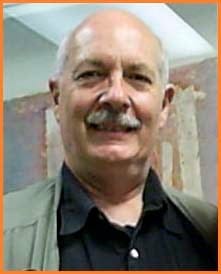 Prof. Grover Furr is a revisionist historian who has dedicated decades to the patient study of Russian history through primary sources, and produced works (Kruschev Lied, Blood Lies), that powerfully contradict the virtually unanimous demonization of Stalin and the USSR, and the crimes imputed to both (such as the Katyn Massacre, Ukrainian famine, etc.), by both Western and even Russian authors. He maintains a page for scholars at https://msuweb.montclair.edu/~furrg/
Prof. Grover Furr is a revisionist historian who has dedicated decades to the patient study of Russian history through primary sources, and produced works (Kruschev Lied, Blood Lies), that powerfully contradict the virtually unanimous demonization of Stalin and the USSR, and the crimes imputed to both (such as the Katyn Massacre, Ukrainian famine, etc.), by both Western and even Russian authors. He maintains a page for scholars at https://msuweb.montclair.edu/~furrg/
APPENDIX
RT.COM VIDEOS WITH S. COHEN
Was Stalin Tyrant or Reformer? – Great Interview With Top Russia Scholar Stephen Cohen
Brutal monster, tyrant and sadist or moderniser, victor and reformer – it’s hard to find a more controversial figure in Russian history than Joseph Stalin. And while successive Russian leaders have approached his legacy differently, it remains as divisive today as ever. Can Russia come to terms with its dramatic past and is it possible to achieve closure, considering the mark this towering figure has left on the Russian people and national psyche? Oksana is joined by Stephen Cohen, Professor Emeritus of Russian Studies at New York University, to examine these issues.
Recorded from RT, Worlds Apart, November 1, 2015
Note to Commenters
Due to severe hacking attacks in the recent past that brought our site down for up to 11 days with considerable loss of circulation, we exercise extreme caution in the comments we publish, as the comment box has been one of the main arteries to inject malicious code. Because of that comments may not appear immediately, but rest assured that if you are a legitimate commenter your opinion will be published within 24 hours. If your comment fails to appear, and you wish to reach us directly, send us a mail at: editor@greanvillepost.com
We apologize for this inconvenience.
![]()
 Nauseated by the
Nauseated by the
vile corporate media?
Had enough of their lies, escapism,
omissions and relentless manipulation?
Send a donation to
The Greanville Post–or
But be sure to support YOUR media.
If you don’t, who will?



